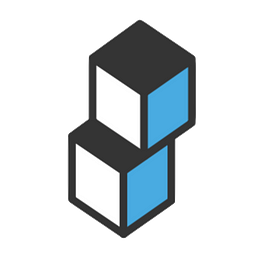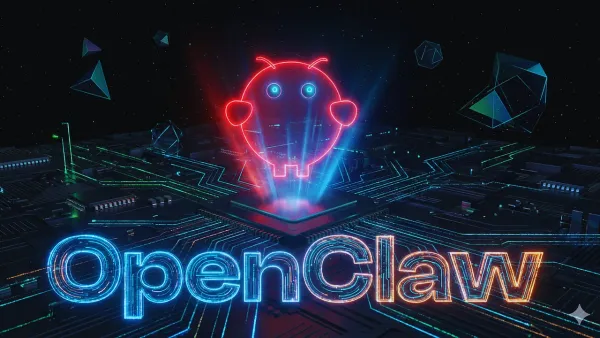Taiwan’s Banking Industry Goes On-Chain! Gold Passbook Tokenization and Union Bank’s Crypto Custody

GM,
Taiwan’s banking sector has moved onto the blockchain. Last week, I invited Cathay Financial Holding for a recording session¹, where two guests, Cynthia and Jenny, pointed out that the draft Virtual Asset Service Act announced by Taiwan’s Financial Supervisory Commission in March was the key turning point. Before that, banks were prohibited from engaging with cryptocurrencies. But after the draft was published, the regulatory stance shifted 180 degrees—from a red light to a green light. This law serves as Taiwan’s first set of “traffic rules” for the crypto space, clearly defining how businesses can operate legally going forward.
As a result, even the most conservative state-owned banks have now started moving, experimenting with the tokenization of gold passbooks.
Tokenizing Gold Passbooks
According to current forecasts on Polymarket², the world’s largest prediction market, there is more than an 80% chance that the U.S. Federal Reserve will announce a rate cut in September. Coupled with geopolitical factors such as wars and tariffs, gold prices have once again reached record highs.
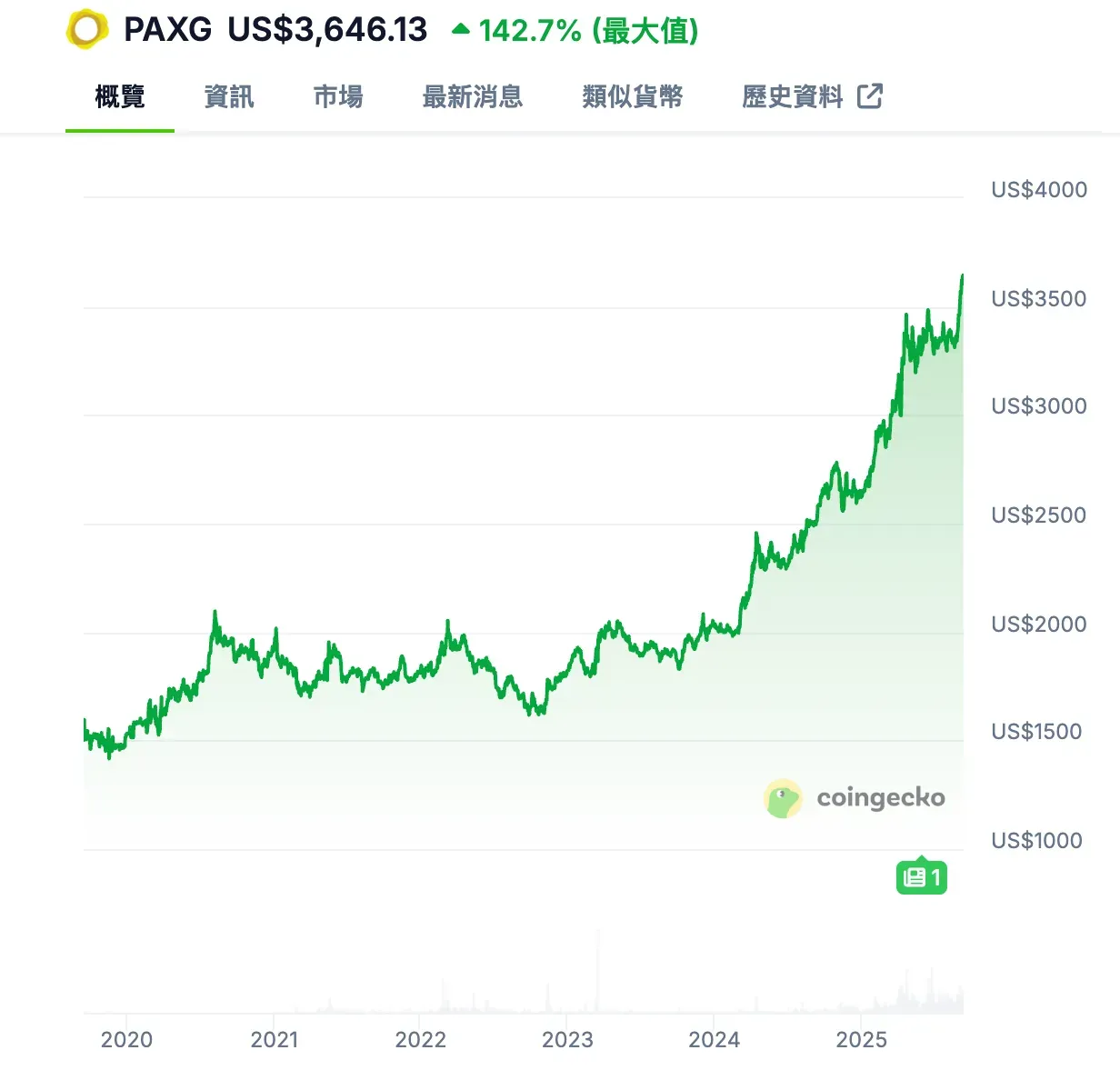
In Taiwan, there are three main channels for buying gold: physical shops (gold bars and jewelry), the stock market (gold spot), and banks (gold passbooks). Some people buy small gold beans from jewelry shops as a form of savings, and over time, a jar of them can become a fortune. For those worried about misplacing physical gold, the stock market and banks offer safer alternatives. Just last week, the Taipei Exchange announced that starting October 1 this year, the minimum unit for purchasing gold spot through the stock market will be lowered from 37.5 grams (around NT$130,000) to 3.75 grams (around NT$13,000). And if that still feels too much, banks’ gold passbooks allow purchases starting from just 1 gram—and in the near future, people may even get to experience the convenience of tokenized gold.
This week, Bank of Taiwan announced a collaboration with eight domestic banks to jointly launch a gold tokenization pilot:
Bank of Taiwan … has officially initiated the ‘Joint Pilot Project on Cross-Bank Applications of Precious Metals Using RWA Tokenization Technology’. This is a large-scale RWA tokenization initiative focused on precious metals by domestic financial institutions … The pilot adopts a dual-layer architecture design: interbank settlement will use consortium-chain tokens, while customer transactions will continue to be conducted via gold passbooks. In a simulated environment, the project will test the feasibility of this framework for scenarios such as gold redemption across different banks.
I believe gold passbooks are an excellent testing ground, precisely because there’s so much room for improvement. Bank of Taiwan highlights two major benefits of tokenization: improved efficiency and innovative services. But the flip side is that outside of basic buy-and-sell transactions, everything else depends on whether each individual bank supports the function, resulting in a rather fragmented user experience. This fragmentation exists because not every bank has its own gold vault. Some banks store their gold reserves with other institutions. For example, Bank of Taiwan provides services that allow banks without their own vaults to “host” their customers’ gold.
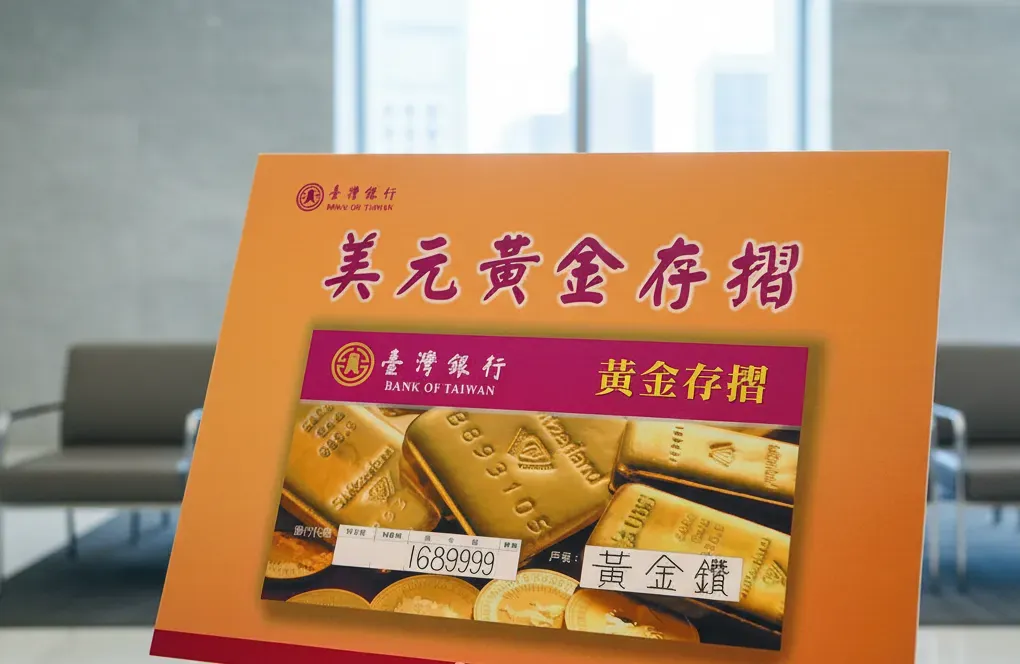
For the average person, as long as the numbers in their account are correct, there’s little need to know which banks operate gold accounts directly and which act as agents. But for agent banks, gold passbooks come with more restrictions—for example, transfers are prohibited, and even withdrawal times or trading hours may differ. This all ties back to the underlying settlement mechanism. Since the gold reserves are held by Bank of Taiwan, it ultimately controls the ledger. Agent banks have no authority to write entries into the ledger, so their rules and schedules are naturally limited.
This is precisely where the benefits of introducing a consortium chain come in. What was once an “Excel spreadsheet³” editable only by Bank of Taiwan is now turned into a blockchain where every participant has write access, secured by a consensus mechanism. The banks that benefit most from this shift are the agent banks, which may in the future function almost like direct operators. For users, while they’ll still hold their familiar gold passbooks, they may notice expanded functionality. With everyone on the same ledger, interbank transfers and withdrawals—previously seen as too much hassle for individual banks to implement—could become possible.
Once gold is tokenized, it’s no longer just a line in an Excel sheet, but a standardized, transferable unit. Banks will need to sit down and define exactly how much gold reserve each unit of tokenized gold represents. Having this shared unit of account will make it far easier from an engineering perspective to integrate with other systems.
In its press release, Bank of Taiwan even mentioned that once gold is tokenized, investors could earn additional returns through a liquidity staking mechanism. Where there’s capital, there’s lending; and where there’s lending, there are yields. Currently, when opening a gold passbook, bank tellers always make clear that gold only fluctuates in price and generates no income. But in the future, gold passbooks that do generate returns might become the norm.
Even more meaningful than gold tokenization itself is the fact that this week, Union Bank announced it has become Taiwan’s first bank to offer cryptocurrency custody services for its clients!
Union Bank Custody for Cryptocurrency
A friend of mine who once bought crypto but later saw an exchange disappear—and even personally witnessed FTX’s collapse—recently asked me: if he wants to buy coins now, which exchange is most reliable? I believe that in the near future, I’ll be able to answer him: why not just keep it at a bank? According to reports:
After receiving approval from the Financial Supervisory Commission (FSC) in June, Union Bank announced today the official launch of its “Virtual Asset Custody Pilot Service,” becoming the first bank in Taiwan to formally open such a business … This marks a milestone for the domestic financial industry in the virtual asset field … Union Bank will adopt the cold wallet custody solution provided by AMIS Technologies, a subsidiary of the MaiCoin Group, to hold the digital assets of XREX Inc. on a small-scale basis.
At present, four banks in Taiwan have been approved to run pilot programs: Union Bank, KGI Bank, CTBC Bank, and Cathay United Bank. Each positions itself differently—Cathay United is starting with high-net-worth clients (total assets over NT$30 million), while Union Bank has chosen a B2B model, providing custody for XREX’s crypto assets.
Anyone familiar with Taiwan’s crypto scene will notice something curious: both AMIS Technologies and XREX belong to the MaiCoin Group. In other words, before Union Bank got involved, XREX was most likely already using AMIS’s technology for asset custody. Now with Union Bank stepping in, it might look a bit redundant—but from a marketing perspective, it’s a win-win-win: Union Bank gets the honor of being first, AMIS’s cold wallet solution gains validation from a bank, and MaiCoin can publicly claim: “assets are safeguarded by a bank.” As long as no one points out how things worked before, everyone’s happy.
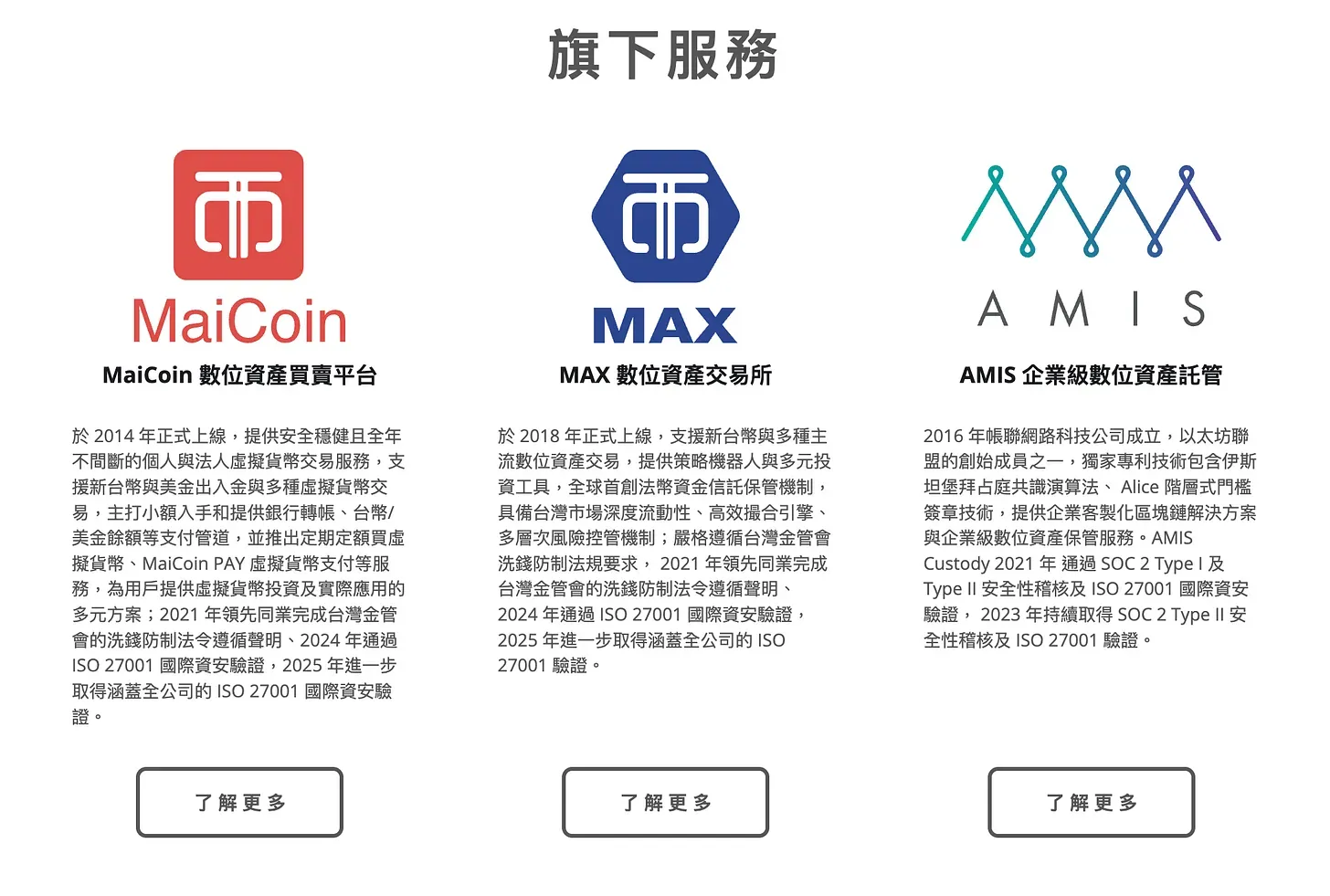
This also highlights the awkward position banks face when first stepping into the crypto space. Especially in the B2B sector, banks must prove that their involvement brings additional value—otherwise, why wouldn’t two companies just sign a direct contract instead of adding an extra layer with a bank? Union Bank has stressed that its core goal this time is to introduce the bank’s rigorous risk management framework and internal control processes. But whether that system can truly be effective in the crypto space remains to be proven—there’s no real-world case yet to support it.
Personally, I think the B2C sector has more potential. If banks eventually open up services to retail users, the most immediate benefit is that older generations wouldn’t need to register unfamiliar exchange accounts anymore. Through their existing bank accounts, they could directly buy and store crypto. Keeping coins in a bank doesn’t necessarily guarantee greater security, but it feels more reassuring.
Moreover, banks already have a mature inheritance process. If crypto assets are included in the future, they could be passed on through standard legal procedures—rather than depending on whether someone left behind a seed phrase. Of course, this raises practical questions: should banks also provide liquidation mechanisms? If heirs don’t want to hold crypto, can they directly convert it into cash at the bank? This will determine whether banks remain mere custodians or gradually evolve into exchanges. It would be like foreign exchange trading today, except in the future people might simply have another type of foreign currency account dedicated to crypto.
Beyond the four banks already approved, others are also exploring partnerships with exchanges, where the bank serves as the entry point while custody is still handled by the exchange. In the past, local exchanges were often mocked as just “USDT channels,” but as regulatory frameworks take shape, new business opportunities are finally emerging.
Although both Taiwan Bank’s tokenization of gold passbooks and banks’ custody of crypto are still in the experimental stage, they are key milestones. Before we had “traffic rules,” the competition was all about brute force—whose car was bigger and tougher. But even FTX, once the world’s second-largest exchange, collapsed overnight. Looking back years from now, people will probably find it absurd that in order to buy crypto, you once had to investigate the founder’s background and assess whether the exchange could cover its losses—an incredibly primitive experience.
